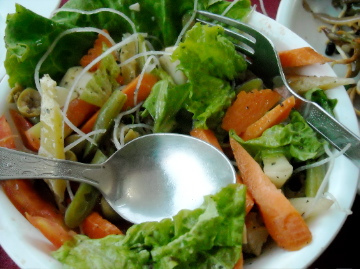Three food books that make you think

Food is the one thing we all share- everyone has to eat. But it's also something a lot of us don't spend much time thinking about or considering. These three books made me think about the nature of food, what I do with it, and what it has to do with my behavior. I recommend them all.
1. Omnivore's Dilemma: A Natural History of Four Meals: The core question of this book is, "If a human CAN eat anything, what SHOULD a human eat?" It was a question I had never thought of before reading this. All of my choices around what to eat were what I like or don't, diet or not, etc. This book is split into four sections and each one is a journey into a type of food production: hunt and gather, small organic farm, industrial organic farm and massive Monsanto-seed farm. Through the journey, author Michael Pollan looks at how food is made and what choices we, as humans, should and have to make.
2. Mother of All Gateway Drugs: Parables for Our Time: This book is one of my favorites for how it approaches everyone's favorite ingredient and nemesis: SUGAR. Author John Newmeyer founded the Haight-Ashbury Clinic in San Francisco in the '60s to treat addiction. In this book he traces the history and medical opinion or sugar through stories and stats. His angle is that we all get addicted to sugar before we know what addiction even is, and we're stuck with it as a behavioral model and an interactive framework with food for life. Think about it.
3. Momofuku: This book, by David Chang and Peter Meehan, is one of the most beautiful cookbooks I've ever seen. Chang is the head chef of a cooking group in NYC called Momofuku and Meehan is a skilled food writer. The photography is awesome and the recipes are delicious. But what makes it stand out is that they truly dig in and tell the story behind the food. Not just the history of the ingredients, like noodles or kimchi, but stories that got them to create the recipes, including childhood memories and the relationships they've created with the vendors they use. It's an amazing way to expand your understanding of preparing food and how a recipe comes into being.
Image courtesy of Sistak via flickr

1 comments